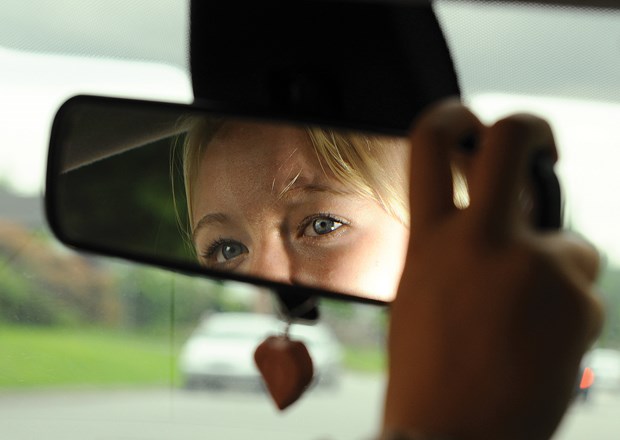When it's time for a teen to want a driver's licence, many parents are conflicted.
On the one hand they know that it's going to happen, their child is going to get behind the wheel of the car and drive.
But they are concerned.
Driving is a big responsibility. The driver needs to be alert, sober and aware at all times. This is not how many parents visualize their teenagers.
On the other hand, once they can drive they can take themselves to their activities; they love to run errands and can be the designated driver when the family goes out for a meal.
The trick is to take it seriously and learn well. And we all know that today, the place kids will go for information is the Internet.
The Canada Safety Council was interested in helping teens to become safe drivers and has partnered with Bridgestone Americas, Inc. to launch teensdrivesmart.ca.
The newly created website contains tips and resources for teens and drivers of all ages. Resources include blog posts, middle and high school curricula, driving contracts and even a downloadable back seat driver's licence for those who aren't quite ready to get behind the wheel.
The website is easy to navigate and has sections for teens, parents, kids and teachers.
What I like most is that there are tips for parents and teens, but not so many that it's overwhelming.
For parents the advice from the site is: "As a parent, you have the ability to start conversations about safe driving habits with your teens early in their driving education. The trick to these conversations is to get your point across without over-bearing or controlling."
How can you do that?
Here are some quick tips from the parents section at teensdrivesmart.ca to get you on your way:
- It's best to set the ground rules early - even before your teen starts driving. One great way to do this is by signing a driving contract. The Teens Drive Smart driving contract requires your son or daughter to commit to being alert, vigilant and responsible behind the wheel.
- Combat texting and driving by leading by example. So, before you answer that text on the expressway think to yourself, "Would I want my son or daughter to answer this text while driving?"
- Consider having your teen share a car with yourself or one of their siblings before you let them go out and get their own car. According to a study from State Farm Insurance
- and the Children’s Hospital of Philadelphia, teens with primary access to a vehicle are more likely to use a cell phone while driving and speed compared to their peers who share the car with another family member.
- Underage drinking is illegal and should never be condoned, but that doesn’t mean you shouldn’t talk to your teens about it. Make sure your teen knows that if he or she ever feels unable to drive, no matter what the situation, to always call you instead of getting behind the wheel or in another car.
-
Just like texting, teens will learn the ropes about speeding from watching your habits. So, lead by example and respect the speed limit.
For a new teen driver who wants to be responsible, the challenge is dealing with peer pressure. The site has some great material for them.
“Before getting in the car with another driver, think to yourself: would I let my kid brother/sister ride with this person? If the answer is no, then you shouldn’t do it either.”
Five quick things teens can say when confronted with a friend who is driving distracted:
- Drinking and Driving: "I'm not feeling well. I think I'm going to call my parents to pick me up. Do you want me to have them pick you up, too?"
- Treating You Like a Chauffeur: "I can give you a ride but the others are on their own."
- Overcrowded Vehicle: "Whoa! We all can't fit. Let's not get (driver) in trouble. Anyone want to stay back with me?"
- Rowdy Passengers: "Hey guys! Not to be annoying, but can you guys quiet down a bit? I'm still getting used to the idea of driving with other people in the car."
- Texting: "Do you want me to hold onto your cellphone while you're driving?" Source: teensdrivesmart.ca and the Children's Hospital of Philadelphia, teens with primary access to a vehicle are more likely to use a cell phone while driving and speed compared to their peers who share the car with another family member.
Learning how to drive is serious business and this website is going to be a real asset to all parents of teens.
Kathy Lynn is a professional speaker and author. If you want to read more, sign up for her informational newsletter at parentingtoday.ca.



